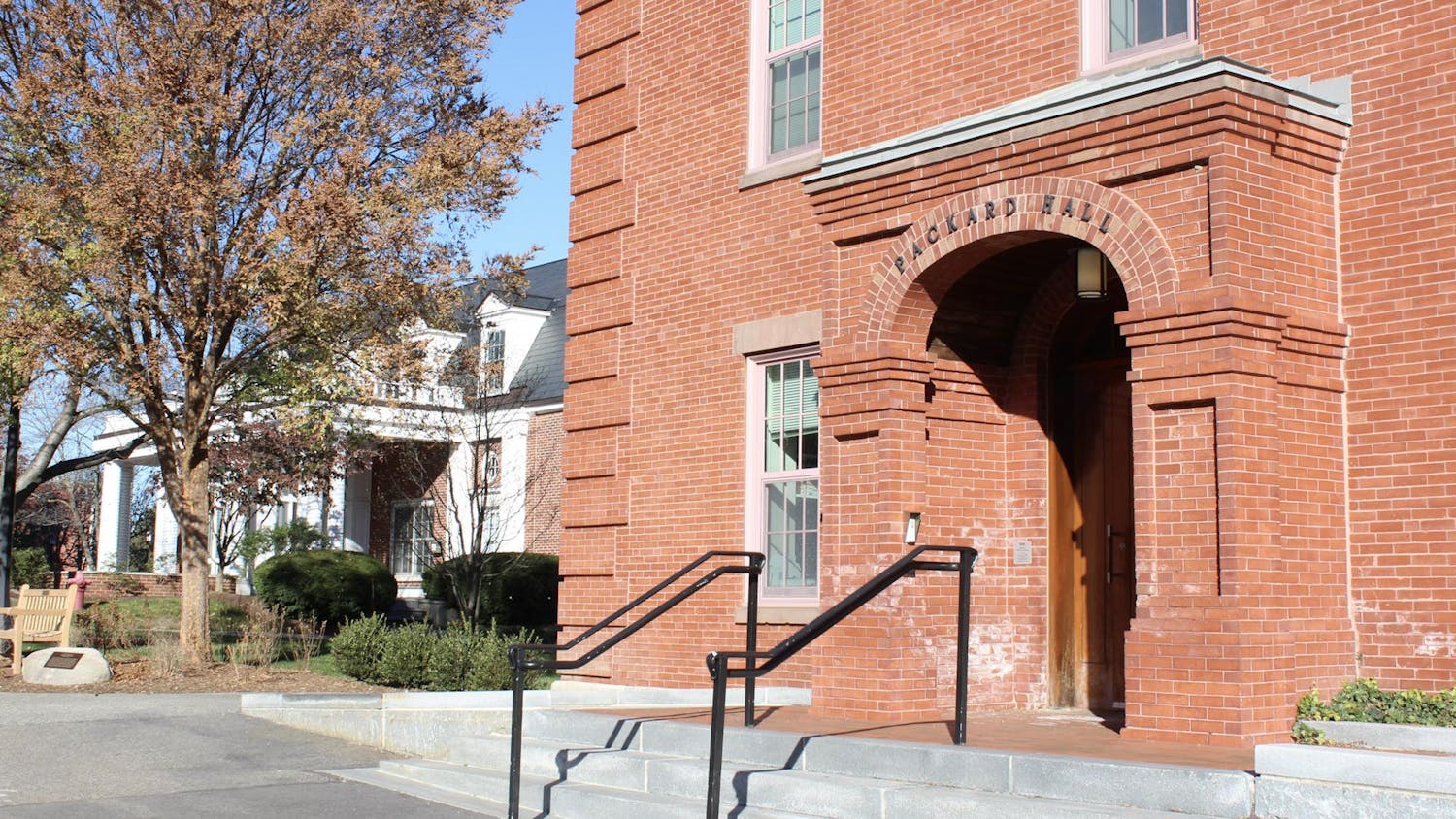Tufts administrators have committed to provide Rainbow House with a physical building for the 2018–2019 academic year, Associate Dean of Student Affairs Chris Rossi told the Daily in an email.
Rossi said that he, LGBT Center Director Hope Freeman, ResLife Associate Director of Residential Education Sarah D'Annolfo and Rainbow House Manager Kenneth Meyerson came to this decision during a meeting in early September.
“Rainbow House is an indispensable part of Tufts and needs a new home to better serve and support students in our community," he said. "The Office of Residential Life & Learning, LGBT Center, and current house members met to discuss a new home for Rainbow House in 2018-19."
Rossi explained that the process was a collaborative one, incorporating many voices.
“We plan to expand the conversation and planning to include the voices of current and former students, staff, and faculty in the near future; our shared commitment is to provide Rainbow House with its own building for academic year 18-19,” he said.
The Rainbow House has currently been given three housing options on campus, including the former Pi Delta house, which now houses transfer students, according to Meyerson.
Rainbow House was initially established 20 years ago as a safe space for queer students on campus, Meyerson said.
While students have been lobbying for a physical Rainbow House for years, conversations began anew last April after Freeman joined the LGBT Center in March. Rainbow House is presently located in Hillsides in a ground floor, ten-person suite, which posed many problems for the 'house' and community, Meyerson said.
According to Meyerson, many students and members of the Rainbow House expressed a need for better housing.
“[The space is] not physically accessible to individuals and if you do manage to get into the space you feel physically restricted in terms of … the ability to rearrange the space to accommodate more people," Meyerson said. "It was just not a space that was practical for hosting community events or just having more people visit."
“To a certain extent, it kind of felt like Rainbow House had been forgotten or at least given a space and just expected to make do with that," he added.
Meyerson also mentioned that the clear boundary between a common room and private spaces posed a problem for residents when events were hosted in the Hillsides space.
Freeman told the Daily in an email that trying to get the Rainbow House a physical space has been a long-term project.
“Way before my arrival students had already been doing their due diligence to get Rainbow House a bigger space," she said. "Upon my arrival at Tufts it was clear that students wanted a lot of change that affirmed their existence on campus; one (of many) being housing."
However, Freeman said she made sure to prioritize Rainbow House upon arriving to Tufts.
“I made sure to bring up Rainbow House to almost every administrator I spoke to, the Office of the Dean of Student Affairs and with the [Associate Dean of Student Affairs], Christopher Rossi,” she said. “This was in an effort to support students who had already been calling attention [to] the needs of specialty housing.”
Meyerson said he felt the project may have been stalled in the past because of disorganization in ResLife or a feeling that administrators were inaccessible to student-driven causes.
He added that part of the reason the house is becoming a reality now is due to the work of Freeman.
“[Freeman] has pushed every day of the week to make this happen," Meyerson said. "It really shows how much dedication she has."
According to Meyerson and Dean of Student Affairs May Pat McMahon, a lot of the movement on the initiative also has to do with the redesign of ResLife.
“We have a significant number of new people in decision-making roles and we’re all trying to respond to students here and to address an existing need,” McMahon told the Daily in an email. “The communication and student-engagement systems we’ve put in place over the past year, particularly the [ResLife] restructuring and Chris [Rossi]’s role overseeing that department, along with improved interdepartmental collaboration within the division, are hopefully improving our ability to address systematic needs like that of Rainbow House.”
Meyerson added that one part of the restructuring of ResLife was an increase in collaboration between different groups on campus.
“This year there's been a lot of work to try to group all the house managers together so we can plan inter-community events and there’s a lot of really good change happening and we just have to keep the forward momentum going there,” he said.
Above all, however, the priority for the Rainbow House is for it to remain a safe space for the LGBTQ community, Meyerson said.
“We’re all different groups of people [and] we all have different struggles," Meyerson said. "The space kind of gives us an opportunity to try and comingle and understand what we’re going through.”
Freeman agreed, saying that the Rainbow House is an important safe housing space in light of various “homophobic bias incidents in residence halls.”
As manager of the house, Meyerson said he has many plans for the future including the creation of more engaging discussions and community dinners with multiple different groups on campus.
“The point is to just bring intersectionality back into play [and] … let people have these discussions,” he said.
Freeman explained that the onus is on administrators to transform the Rainbow House into reality.
“Students have been asking for a better space for Rainbow House for a long time and we as administrators needed to listen," she said. "This is an opportunity to show students that we are committed to improving LGBT student life here at Tufts.”
Rainbow House to get physical building in 2018–2019 academic year

The Rainbow House, located in the 160s of Hillside Apartments, is an LGBTQ-friendly, open atmosphere for students interested in topics of gender and sexuality. The current space is pictured here on Oct. 4.





